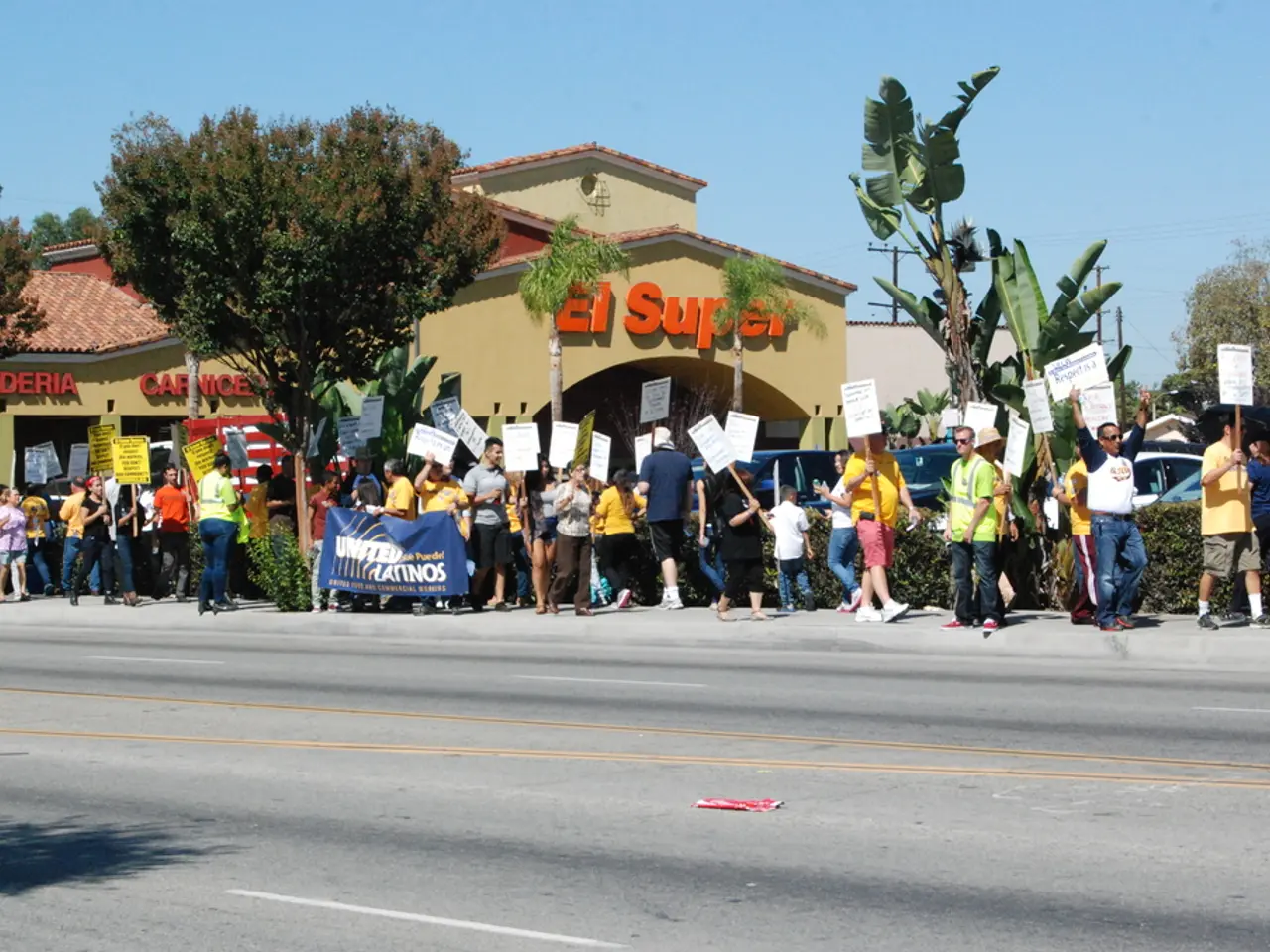Top Information Sources for Learning about Elections: Websites and Applications
Top Educational Resources for the 2024 U.S. Presidential Election
As the 2024 U.S. Presidential Election approaches, students can gain valuable insights into the electoral process and civic responsibilities with the help of various nonpartisan educational resources. Here are some top resources to help students better understand the election:
- iCivics
- Resources: iCivics offers a wide range of educational materials, including interactive lessons and games, to teach students about the electoral process and civic responsibilities.
- Nonpartisan Nature: iCivics is a well-regarded nonpartisan organization dedicated to promoting civic education.
- Recent Activity: iCivics has hosted events like the iCivics Educator Convening, focusing on legal topics and civic engagement.
- Games: Some popular games offered by iCivics include Cast Your Vote, Branches of Power, and NewsFeed Defenders.
- National Archives
- Resources: The National Archives provides detailed information on the Electoral College, including historical facts and FAQs. This helps students understand the broader electoral process and its significance.
- Nonpartisan Nature: The National Archives is a government institution that provides unbiased historical and educational resources.
- Relevance: Their resources include a timeline of electoral events and explanations of the Electoral College system.
- Library of Congress
- Resources: The Library of Congress offers themed resources on elections, including materials about the presidential election process. These resources include lesson plans and historical documents.
- Nonpartisan Nature: As a government institution, the Library of Congress provides impartial educational content.
- Relevance: Their materials cover topics like caucuses, primaries, and national conventions.
- PBS NewsHour
- Resources: PBS NewsHour provides engaging civics lesson plans for students. These resources cover key issues like political parties, voting rights, and local elections.
- Nonpartisan Nature: PBS is known for its balanced and impartial reporting.
- Relevance: Their video-based lessons are designed for grades 6-12 and cover contemporary civic issues.
- Safeguarding Democracy Project at UCLA Law
- Resources: This project includes research and discussions on ensuring free and fair elections. Although aimed more at promoting democratic processes, it can provide insightful discussions and resources on election integrity.
- Nonpartisan Nature: While not primarily focused on student education, it involves diverse perspectives in discussions about election processes.
- Everything Policy
- Resources: Everything Policy offers policy education programs for high school students. Although not specifically focused on the presidential election, they provide critical thinking resources related to policy and government.
- Nonpartisan Nature: Their aim is to promote civic engagement and policy understanding.
In addition to these resources, students can also benefit from other educational tools such as AllSides, C-SPAN Classroom Deliberations, and the 2024 Presidential Simulation. These resources offer various interactive experiences, from managing a presidential campaign to manipulating conditions in a detailed simulation of the Electoral College.
The Learning for Justice Future Voter Project also provides resources to educate kids about voting rights, voter suppression, and registering students to vote.
The article was updated on August 30, 2024.
It's essential for students to be well-informed about the electoral process and civic responsibilities. These resources can help students develop a deeper understanding of the 2024 U.S. Presidential Election and encourage them to become active, informed voters.
- A dedicated teacher might find the interactive games offered by iCivics, such as Cast Your Vote and NewsFeed Defenders, beneficial for their students' learning about the election process.
- The school library could complement these resources with materials from the Library of Congress, like lessons on caucuses, primaries, and national conventions, to provide a broader understanding of the presidential election.
- Incorporating general news sources like PBS NewsHour into the education-and-self-development curriculum can help students stay updated on contemporary civic issues and political parties, fostering their knowledge of current affairs.
- A STEM teacher looking to include politics in their curriculum could leverage the Safeguarding Democracy Project at UCLA Law, which offers valuable discussions on election integrity.
- The Learning for Justice Future Voter Project's focus on voting rights, voter suppression, and student registration initiatives could benefit from being addressed in a politics or social studies class to instill civic responsibilities in students.




